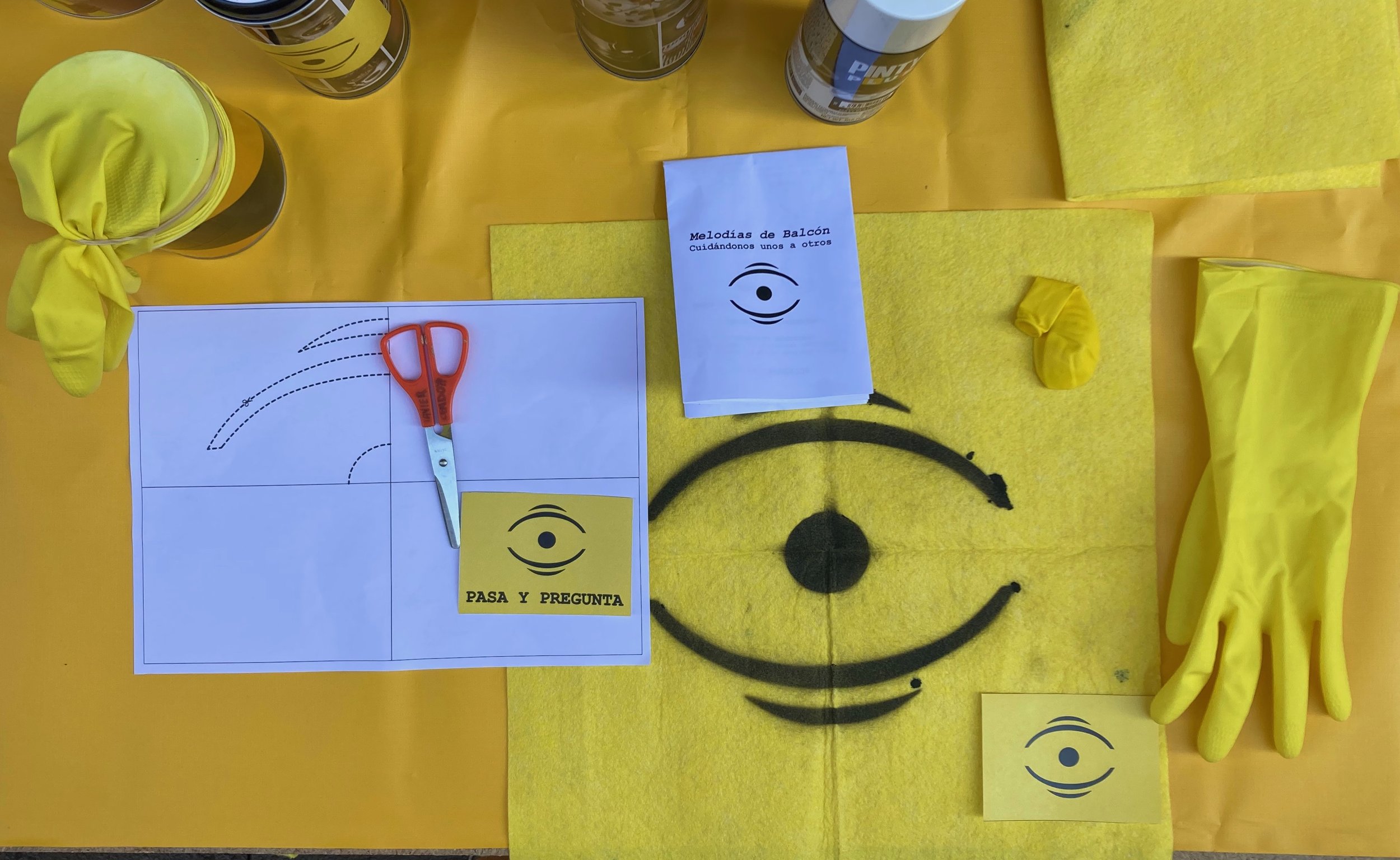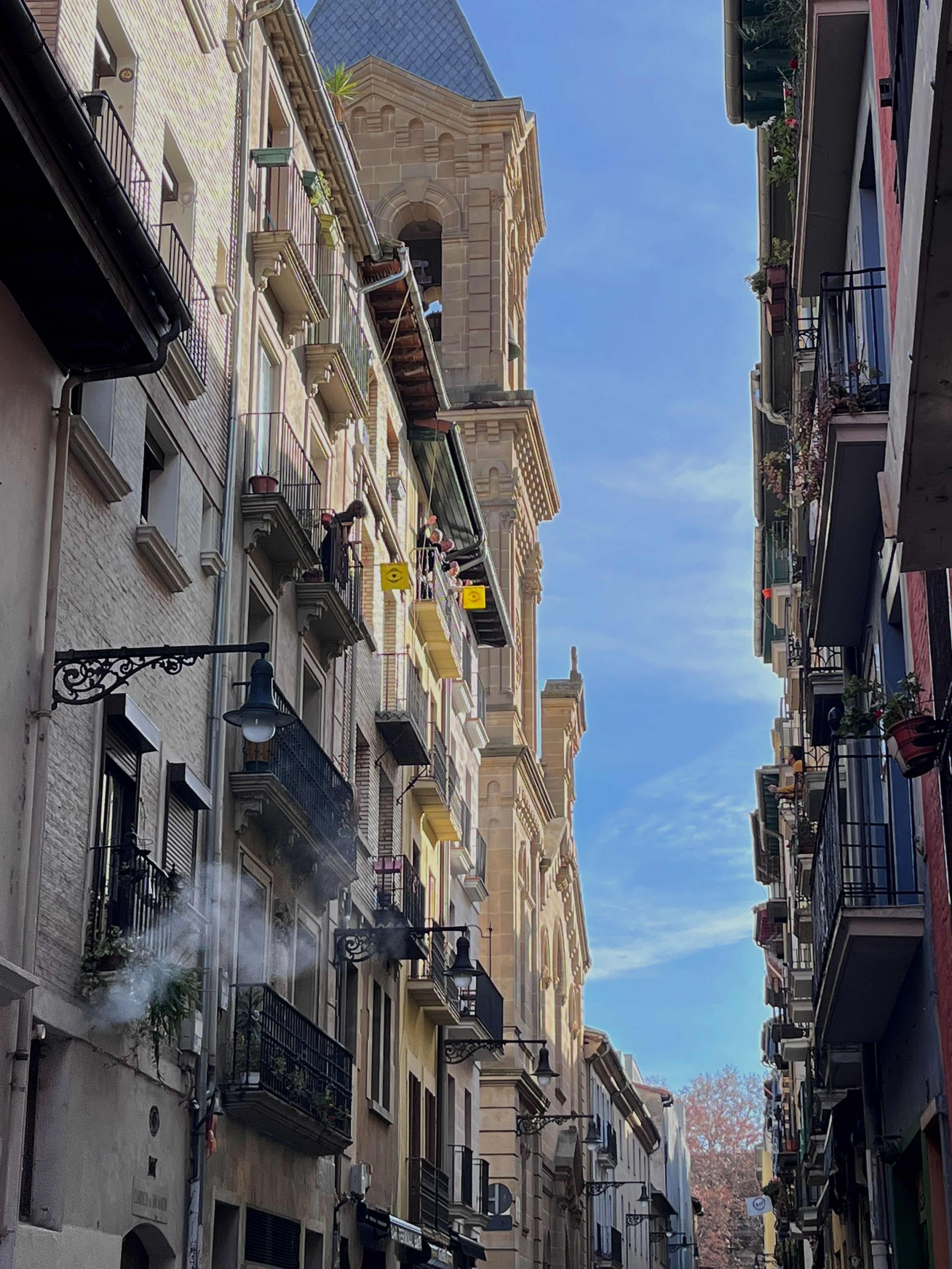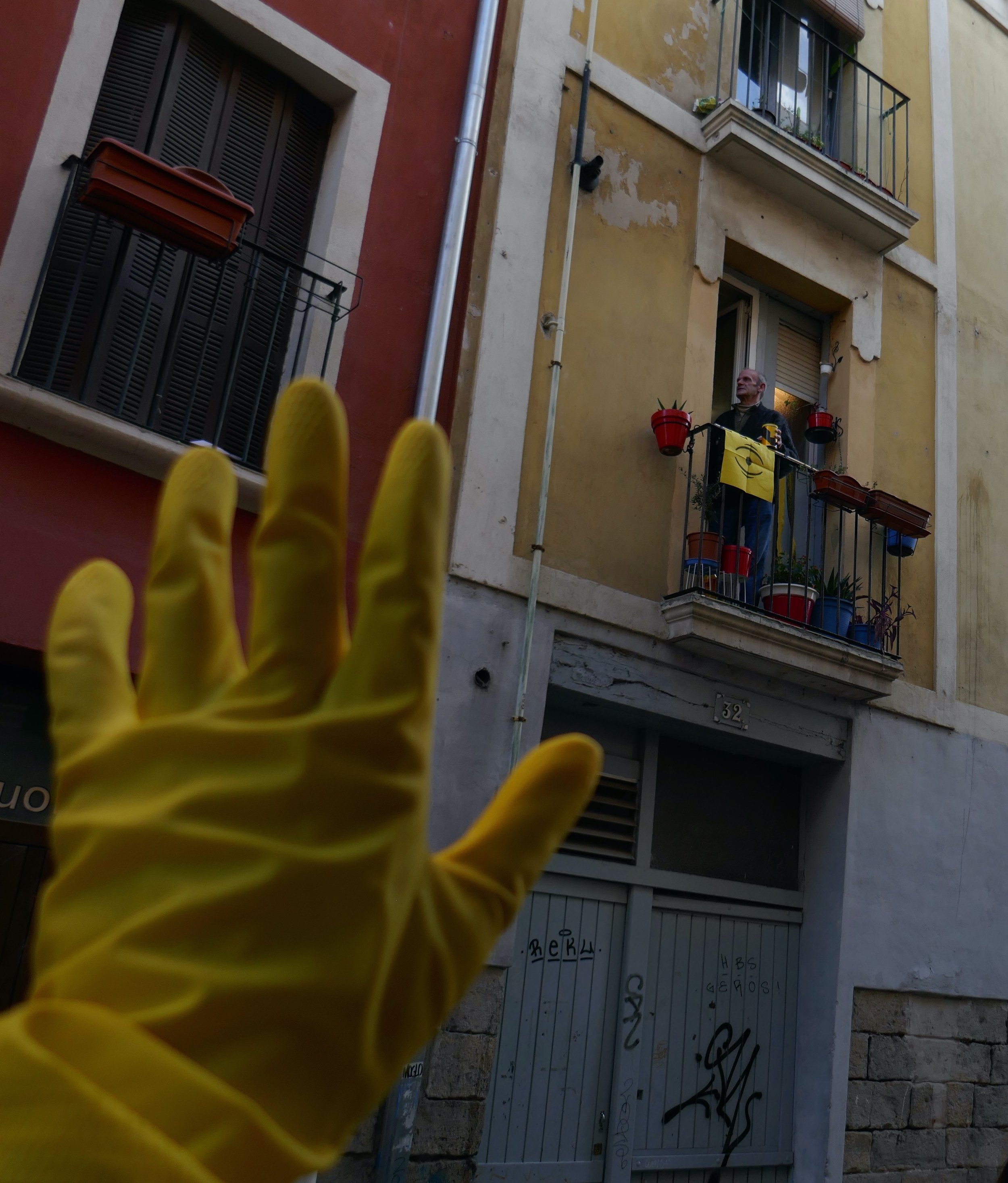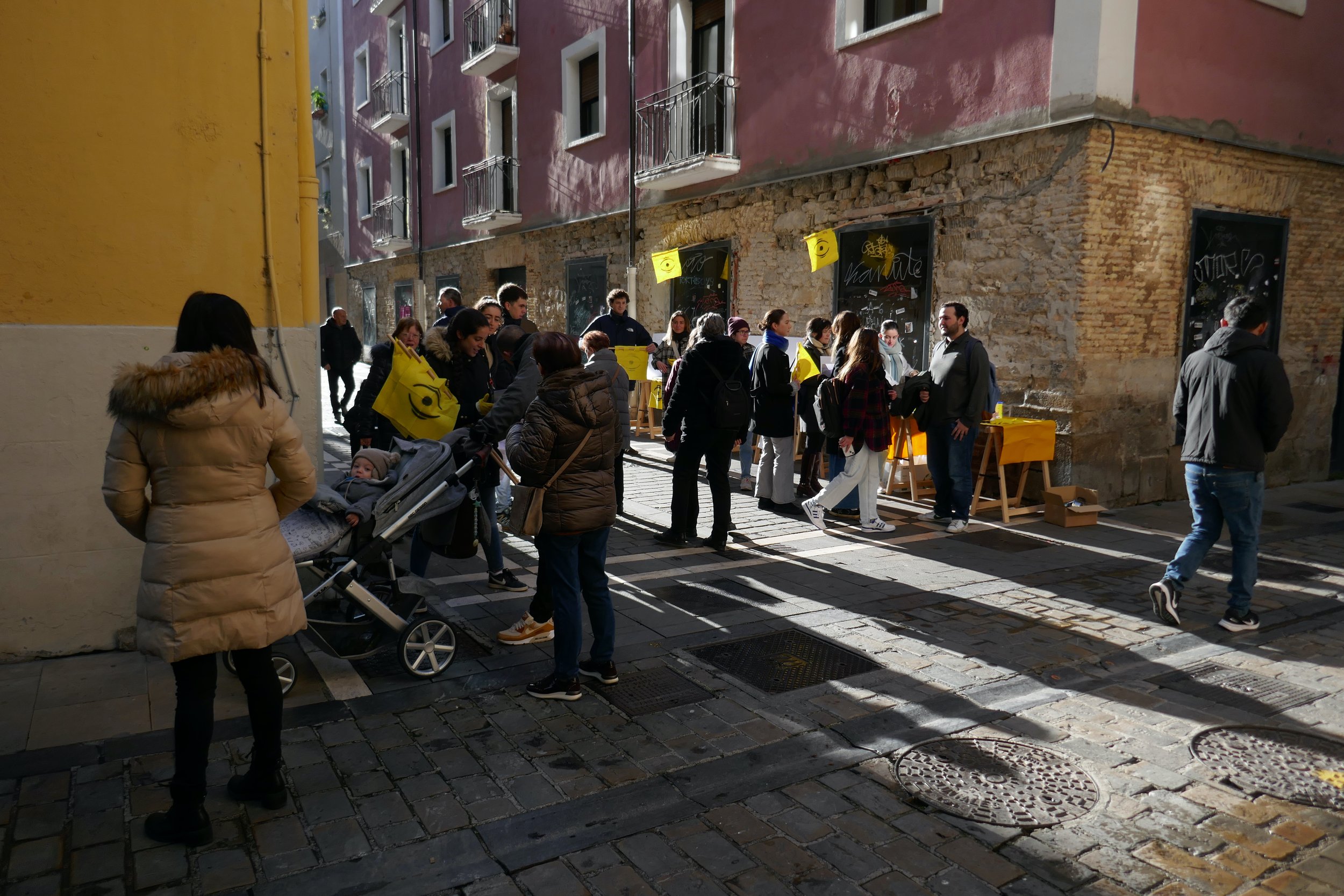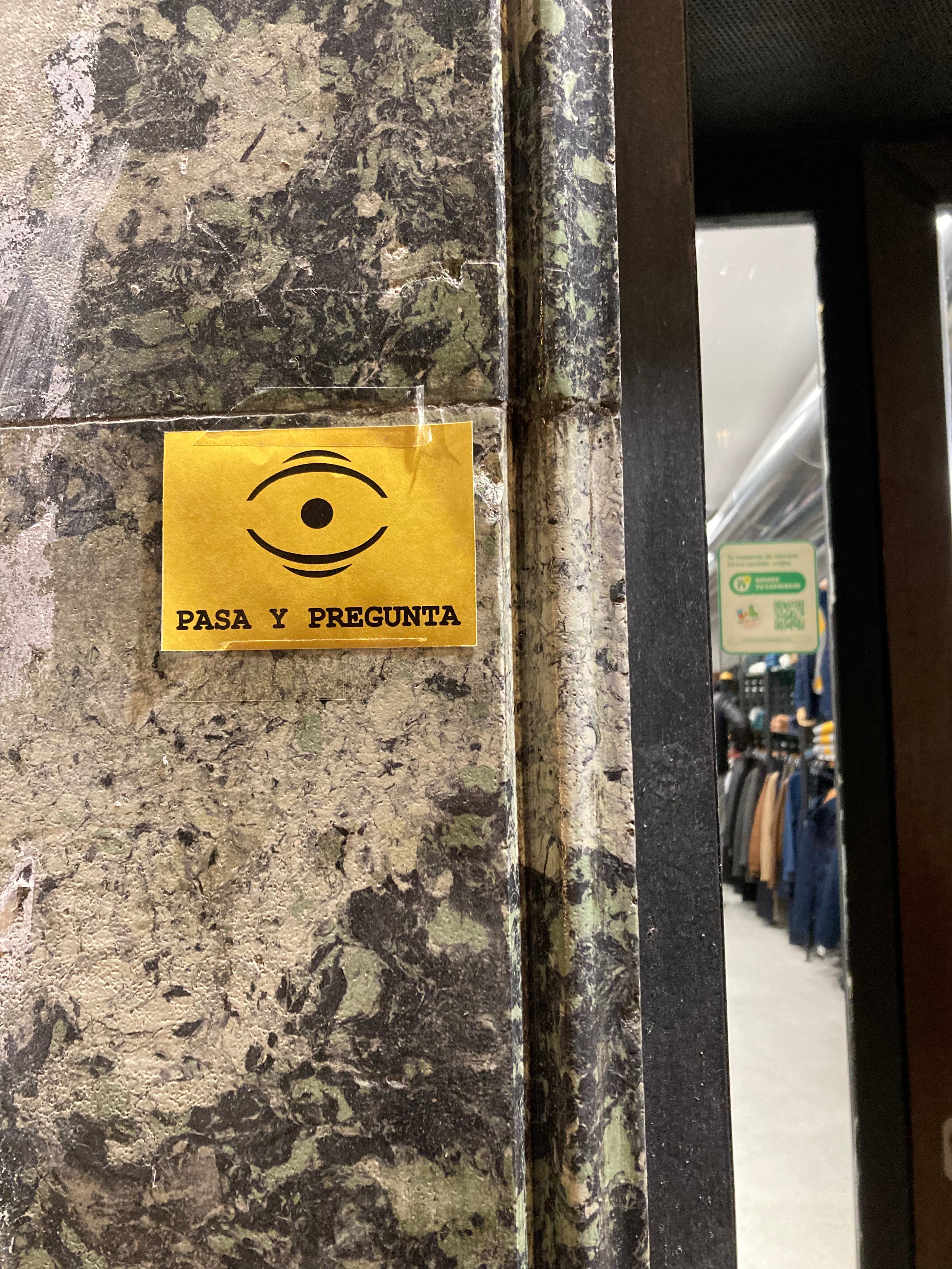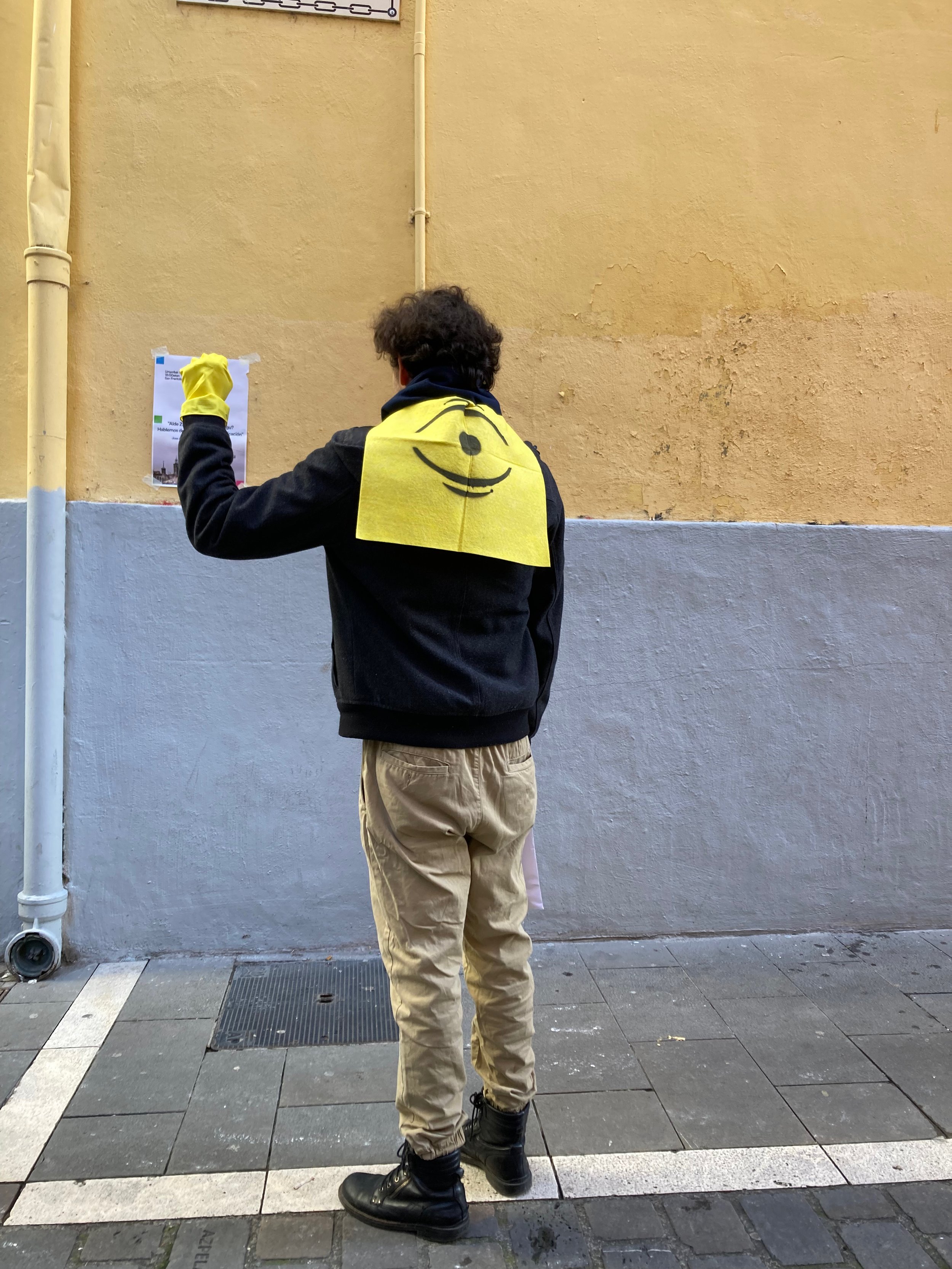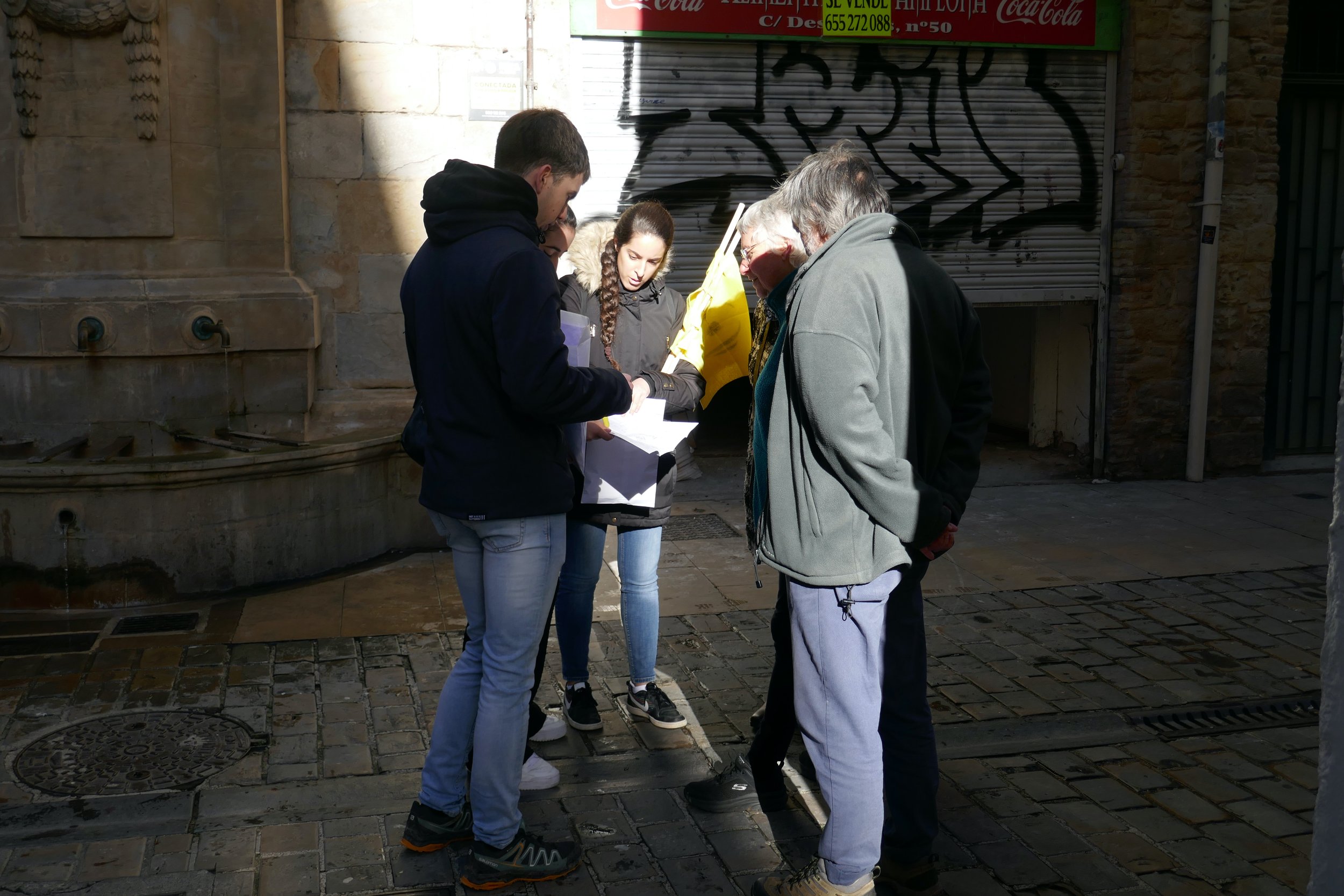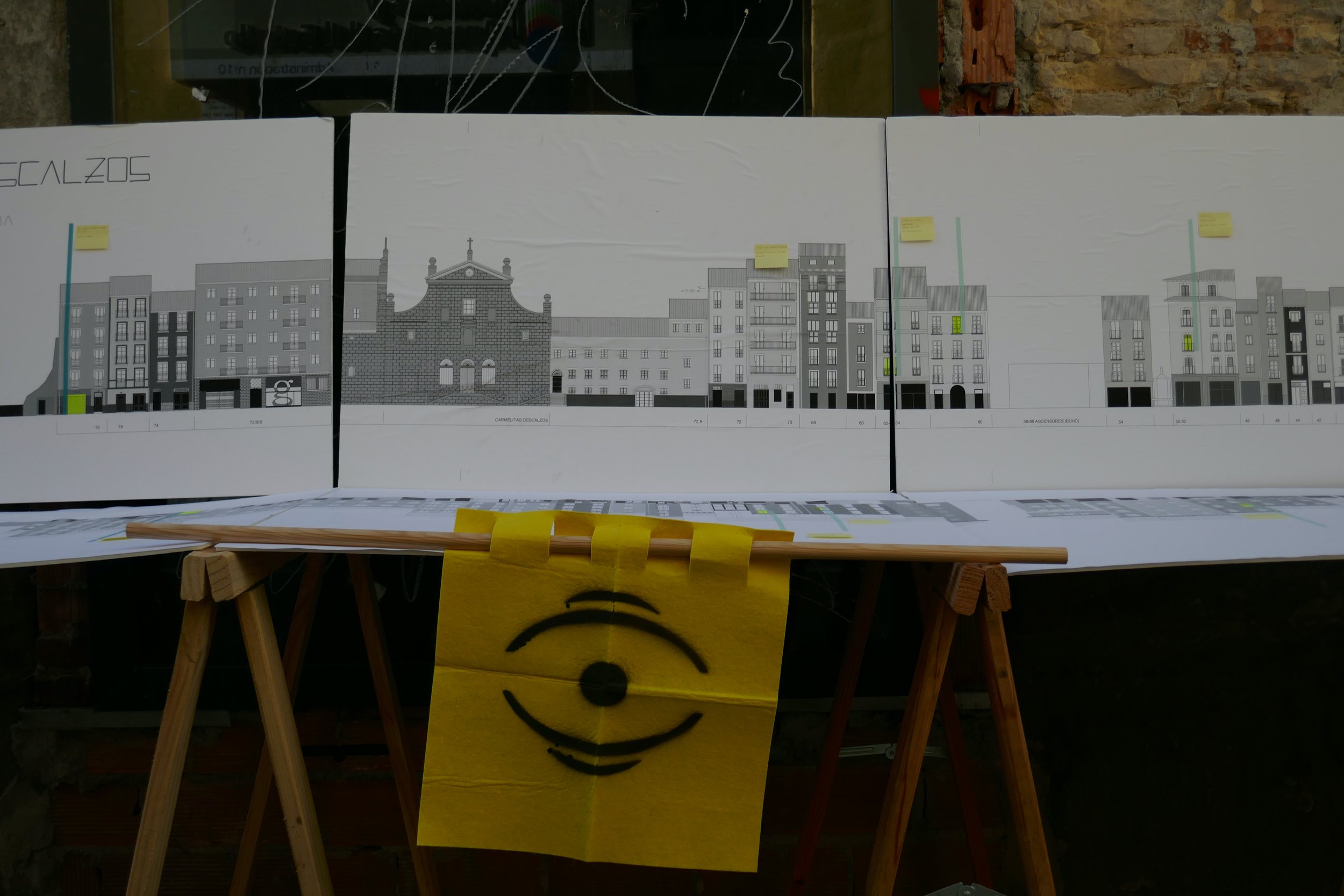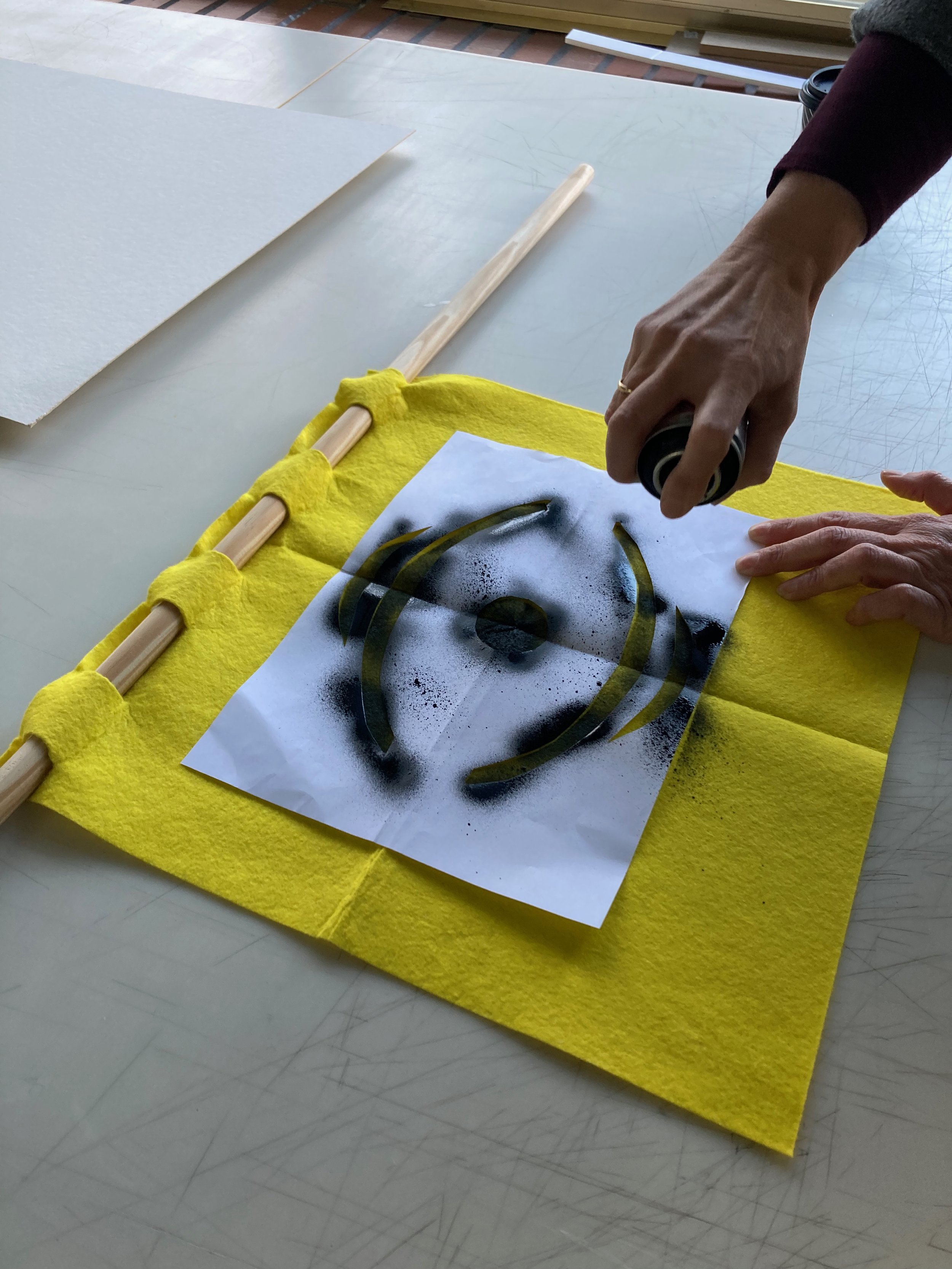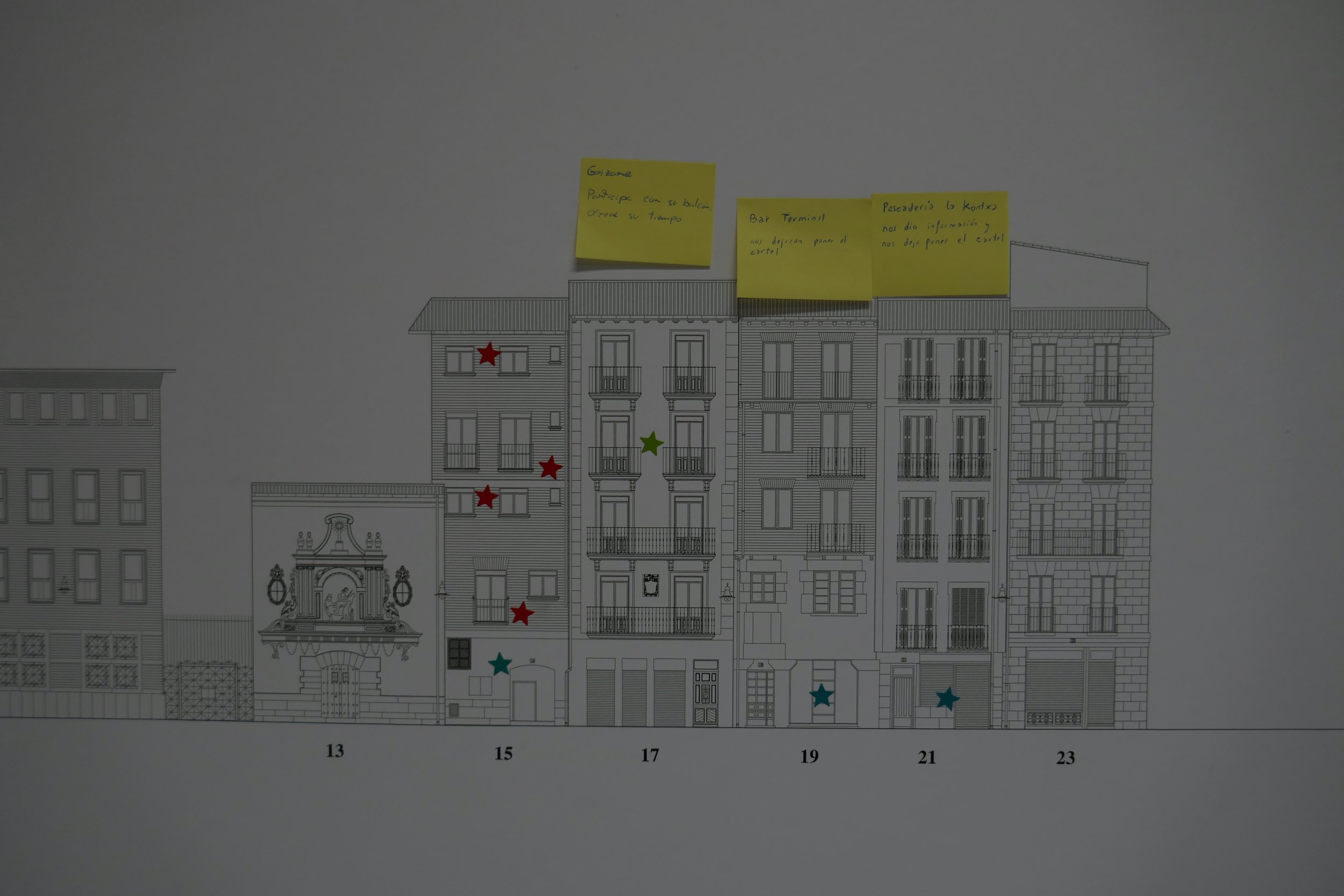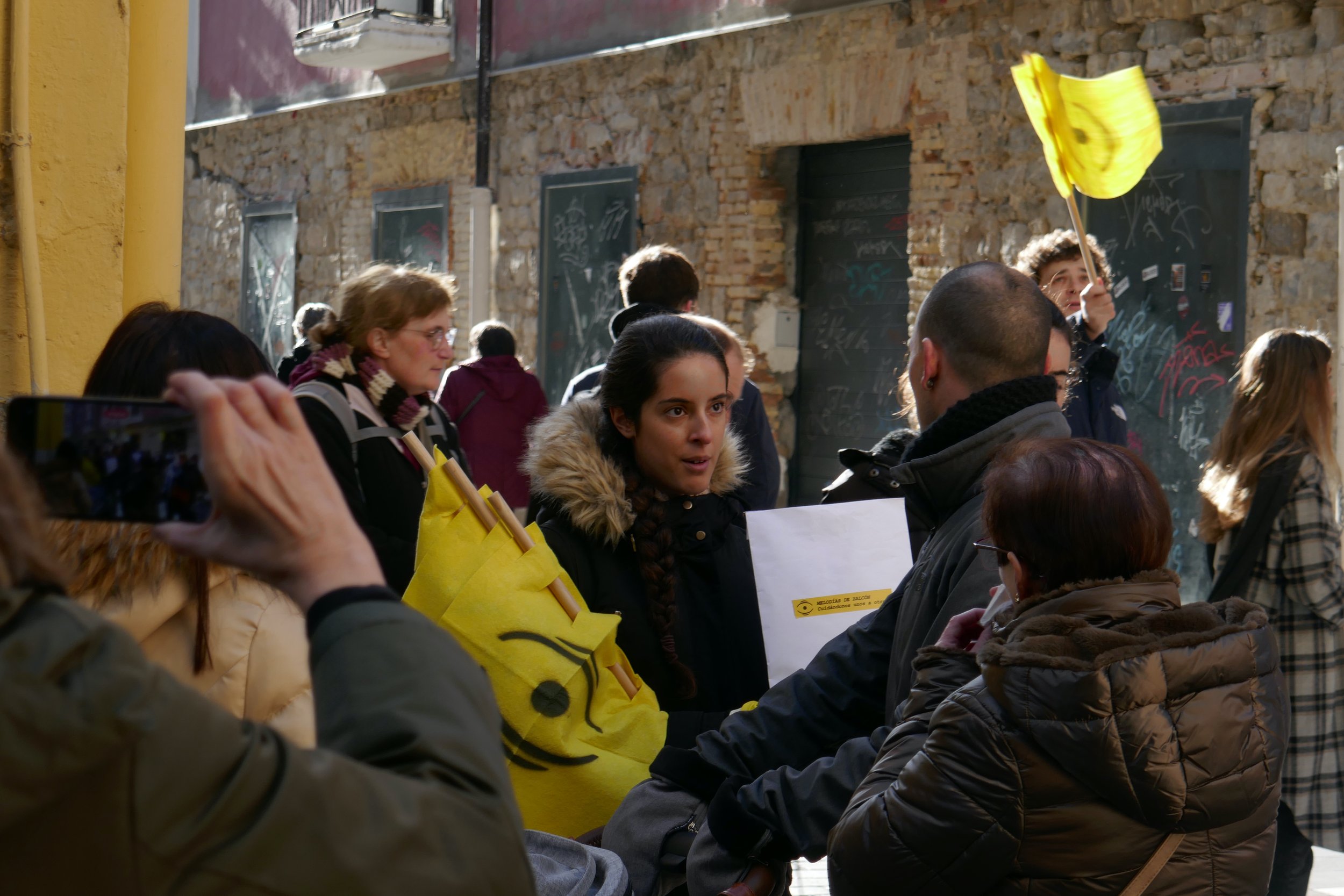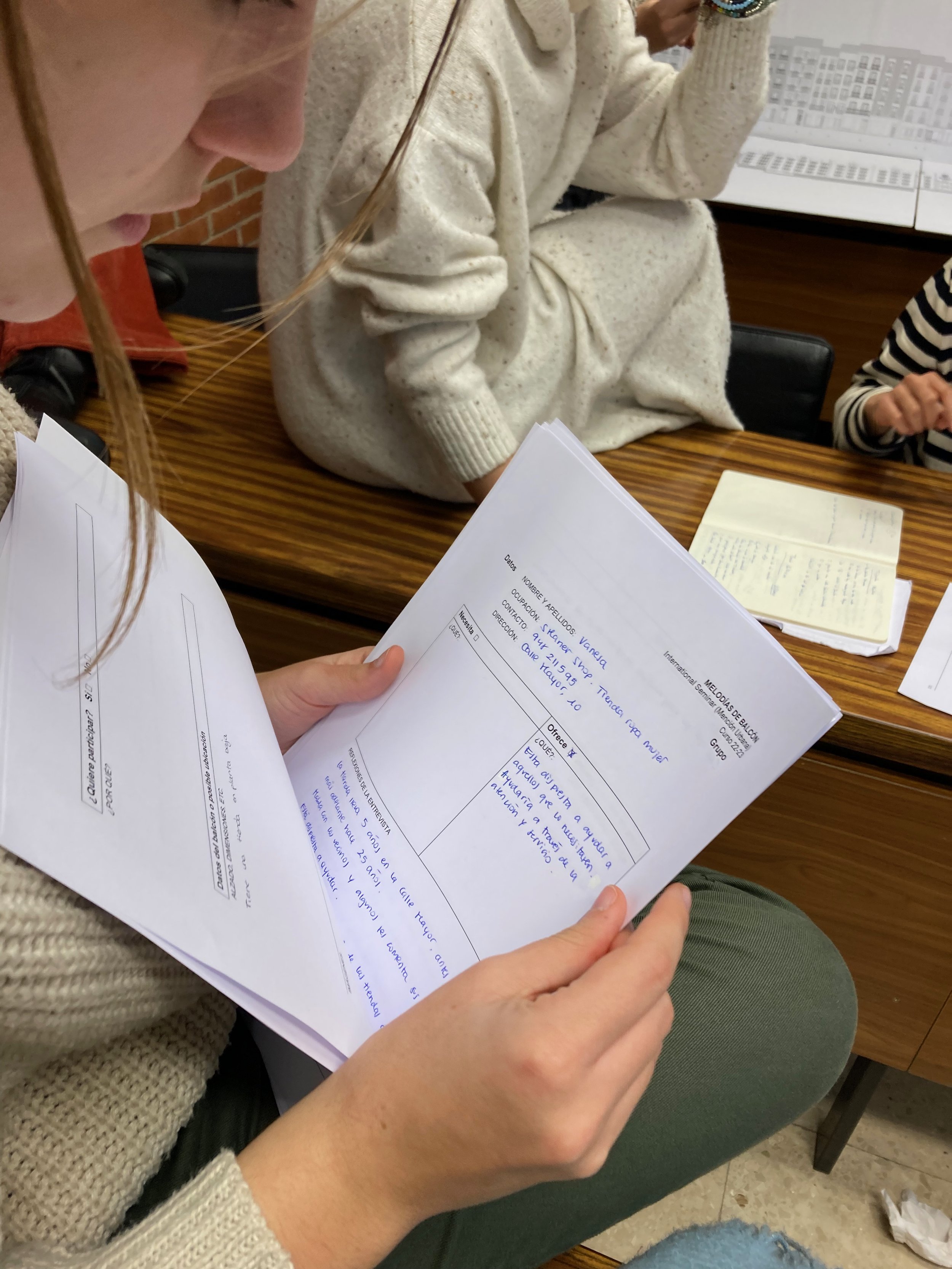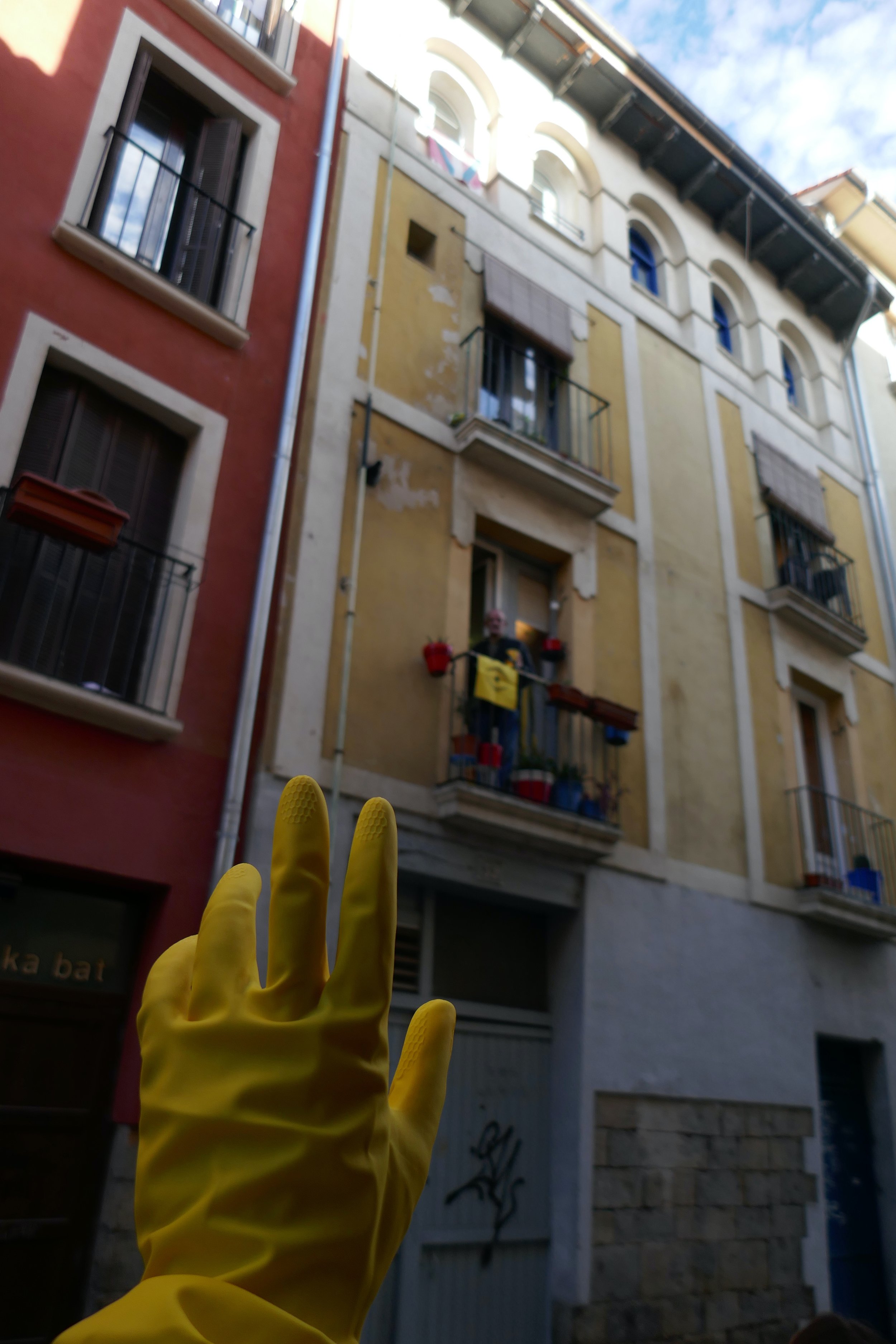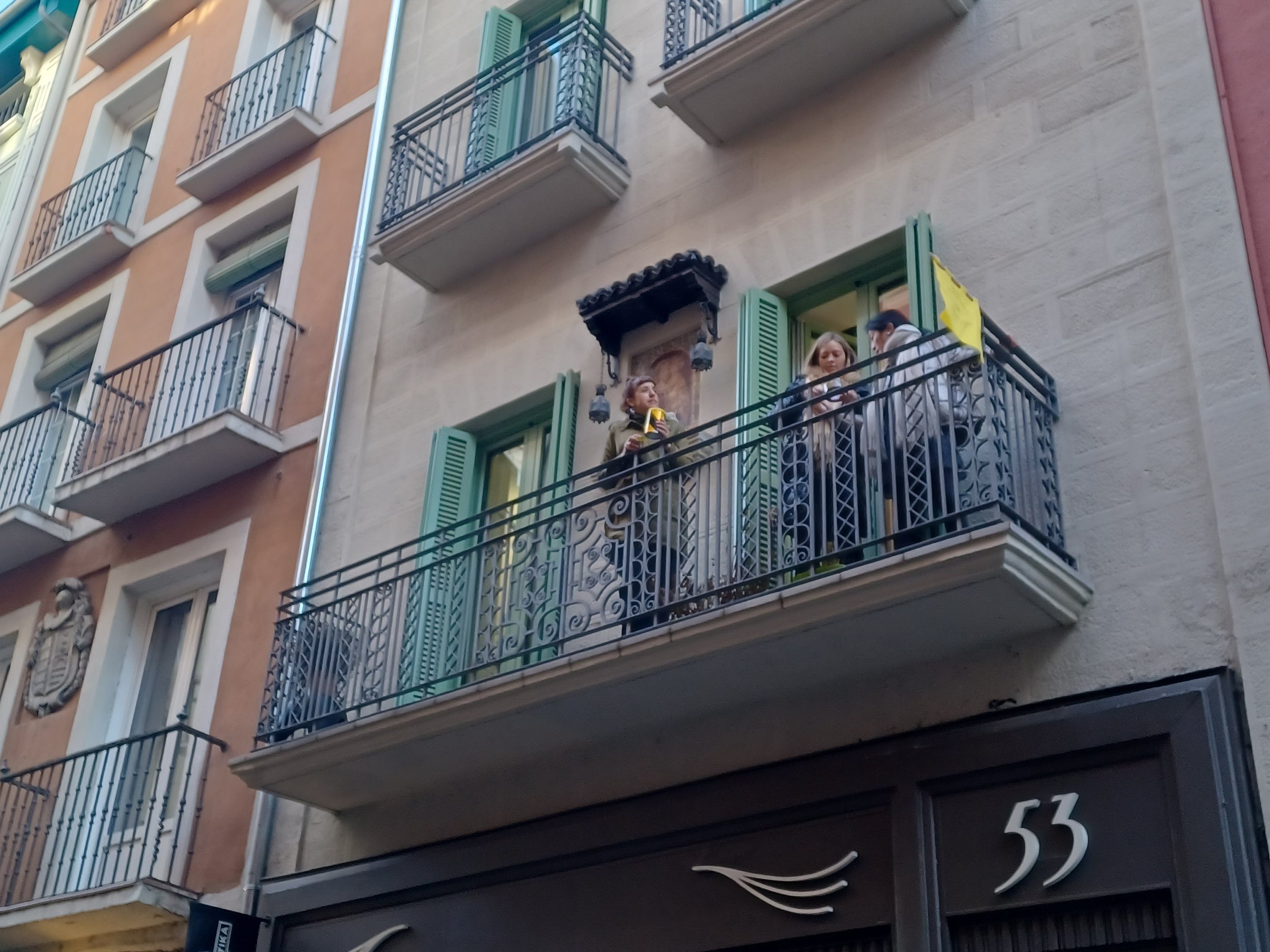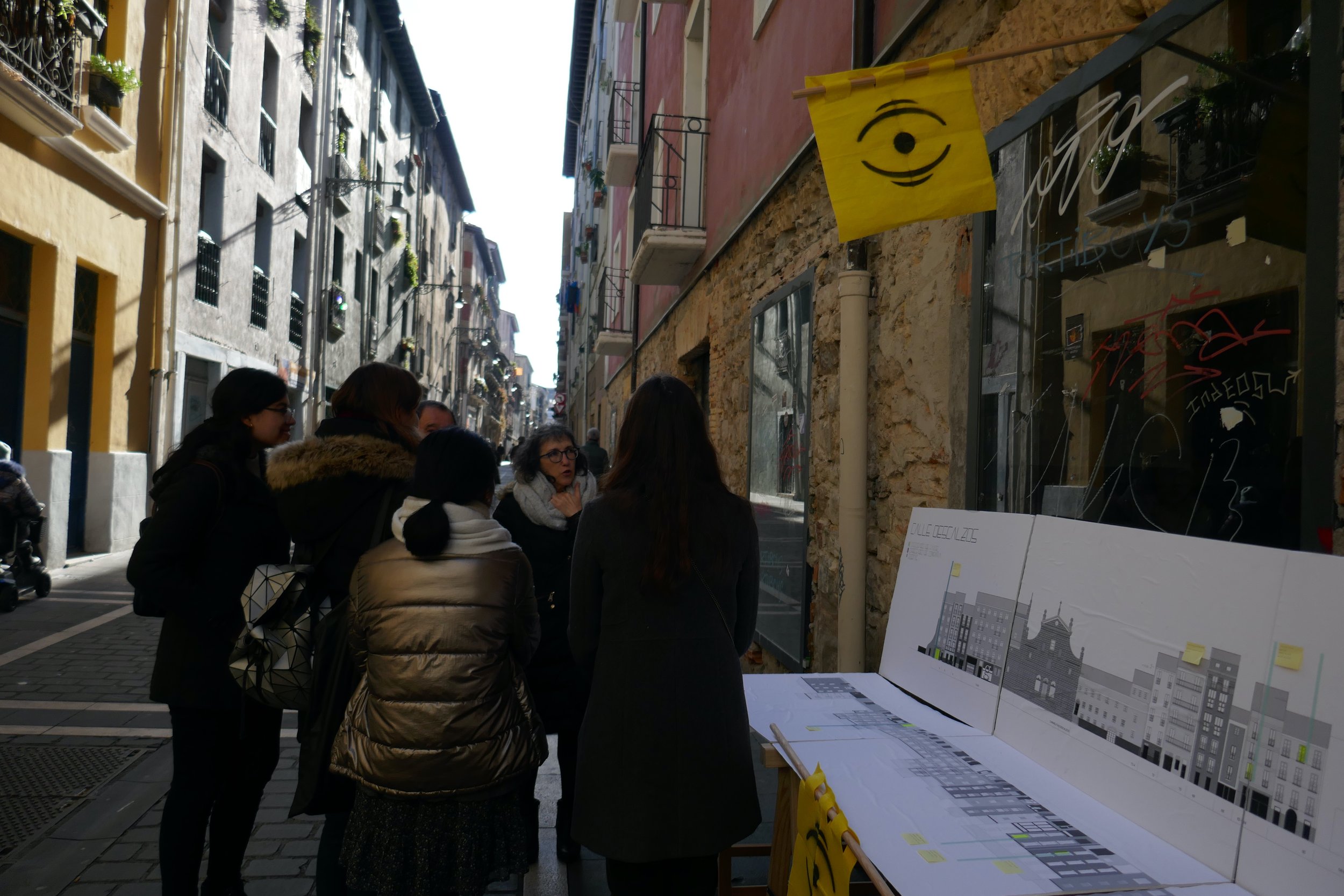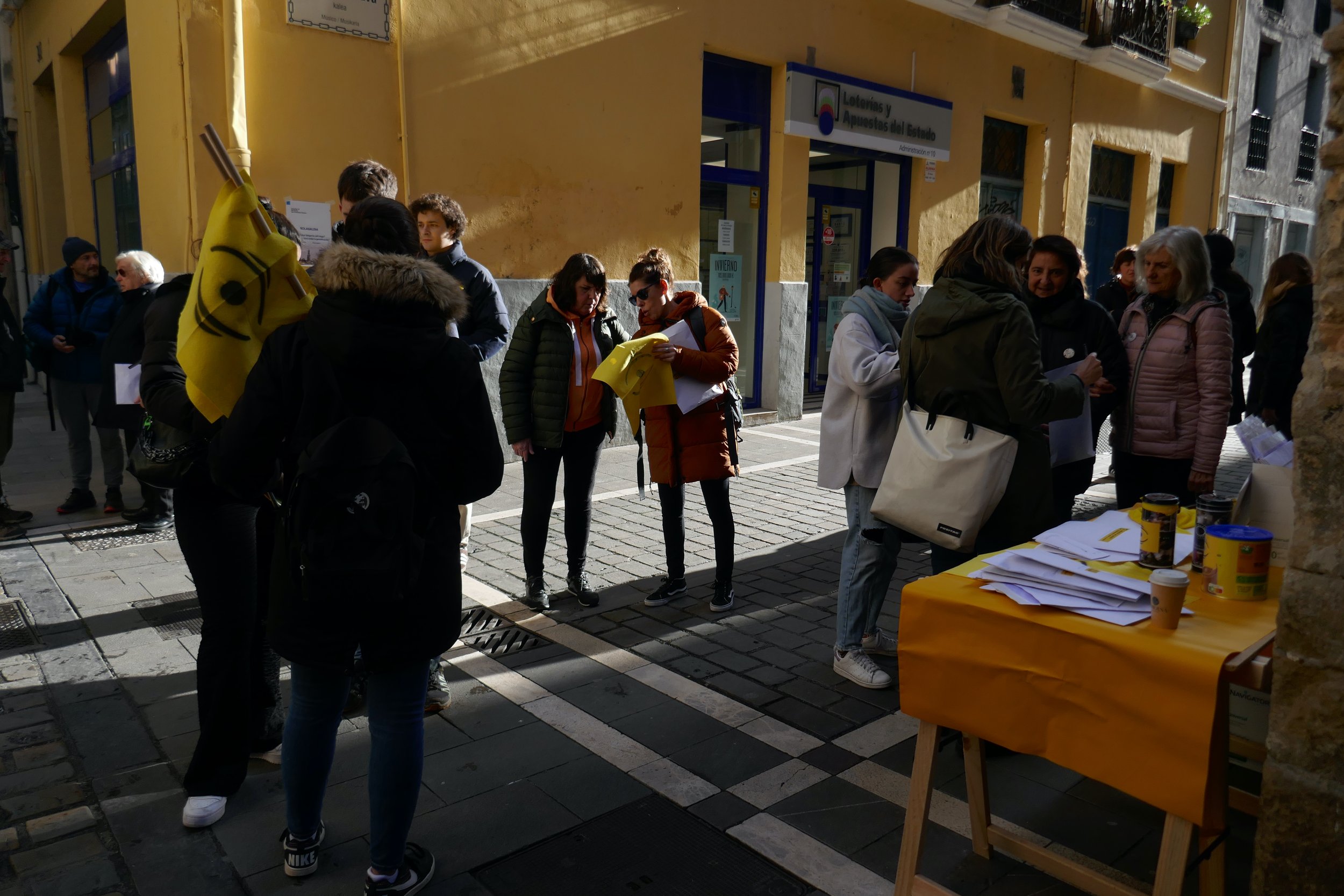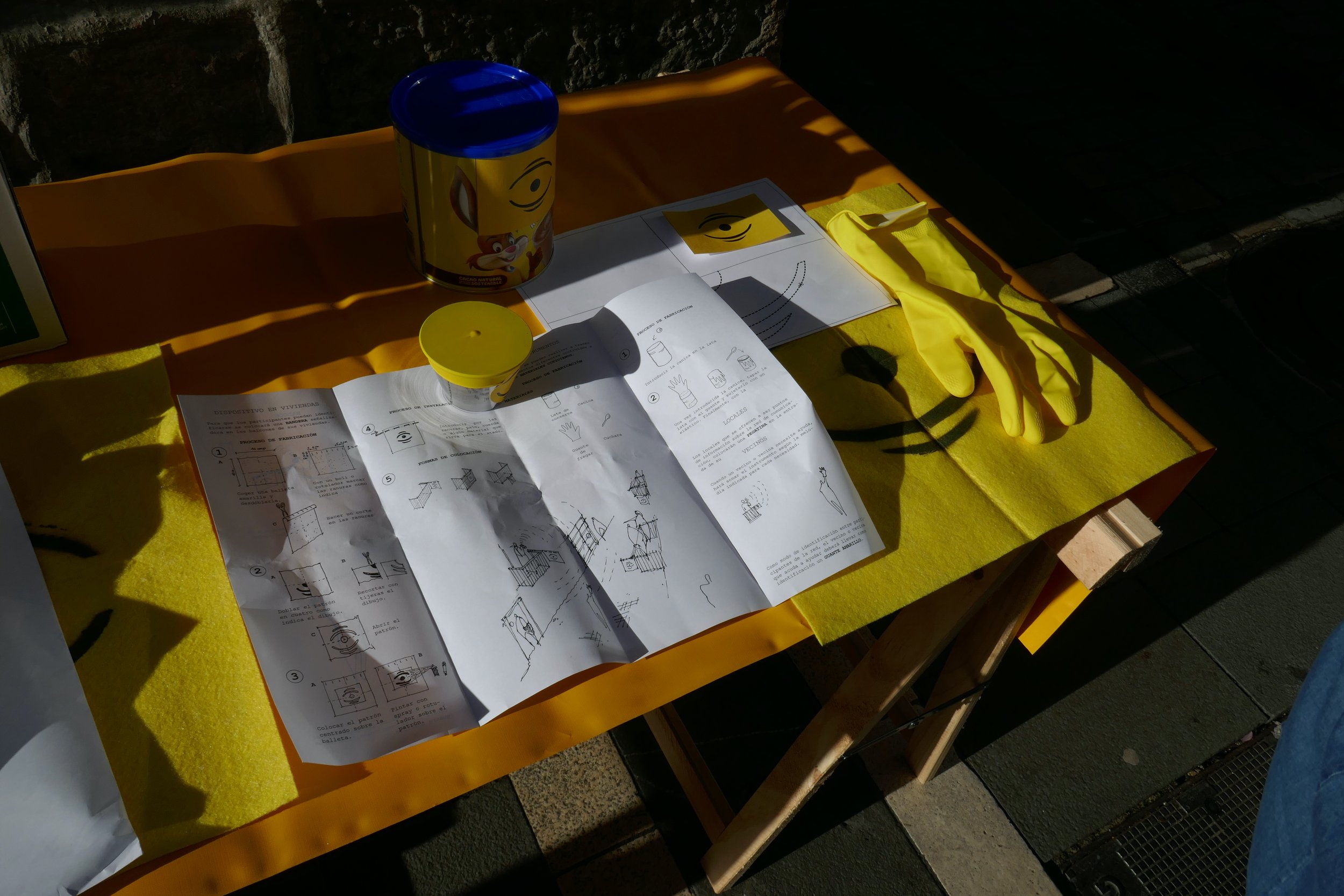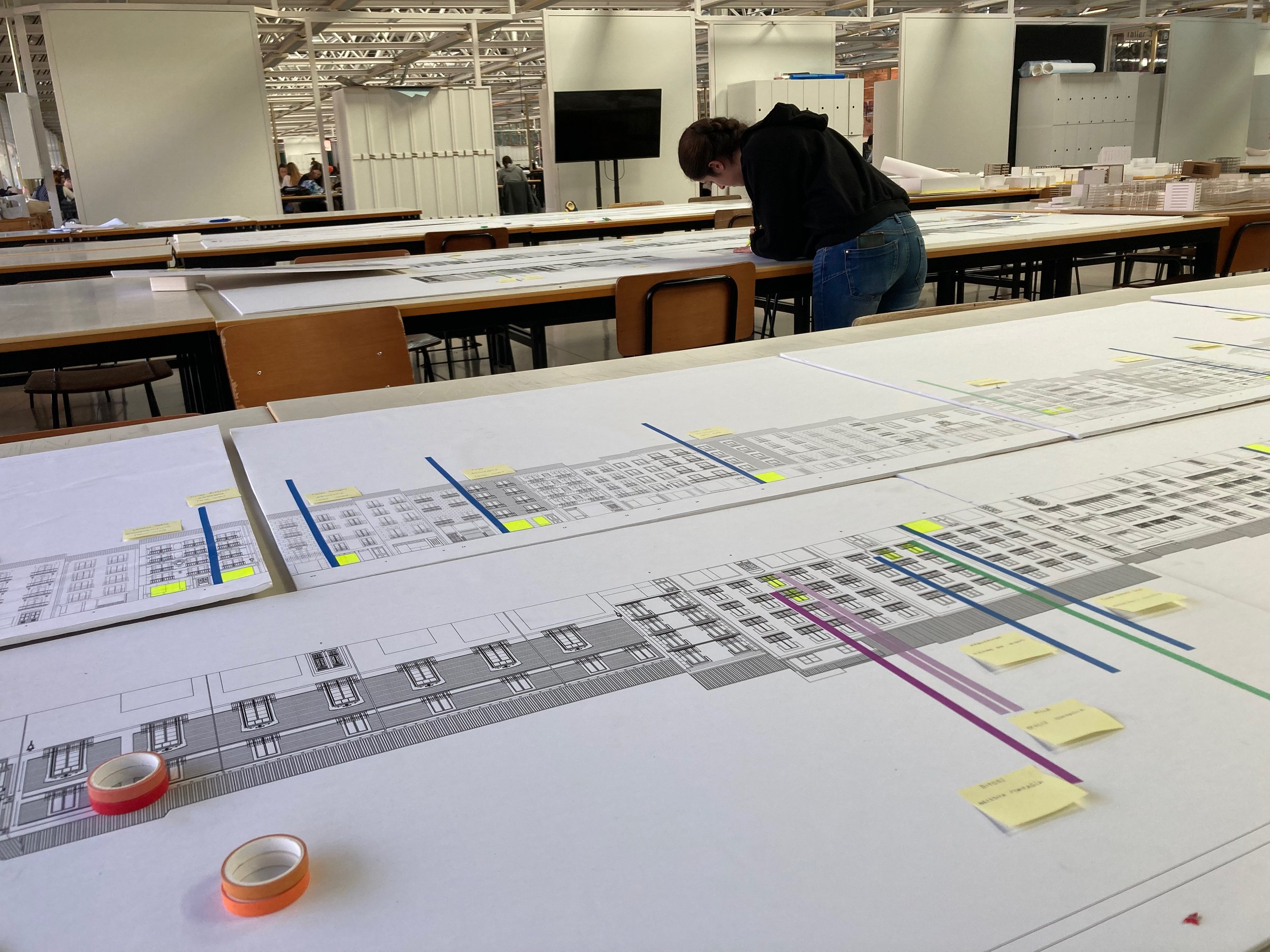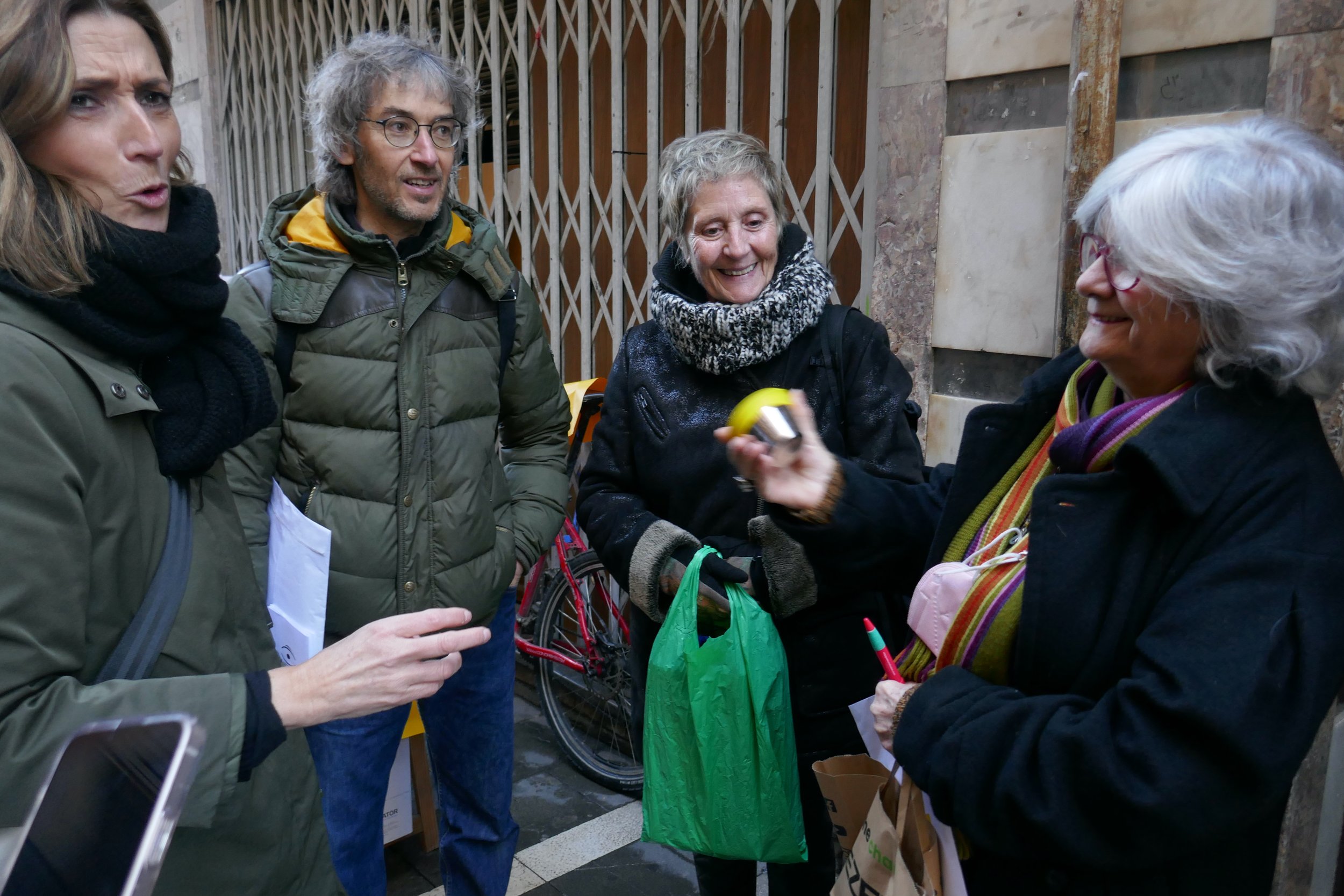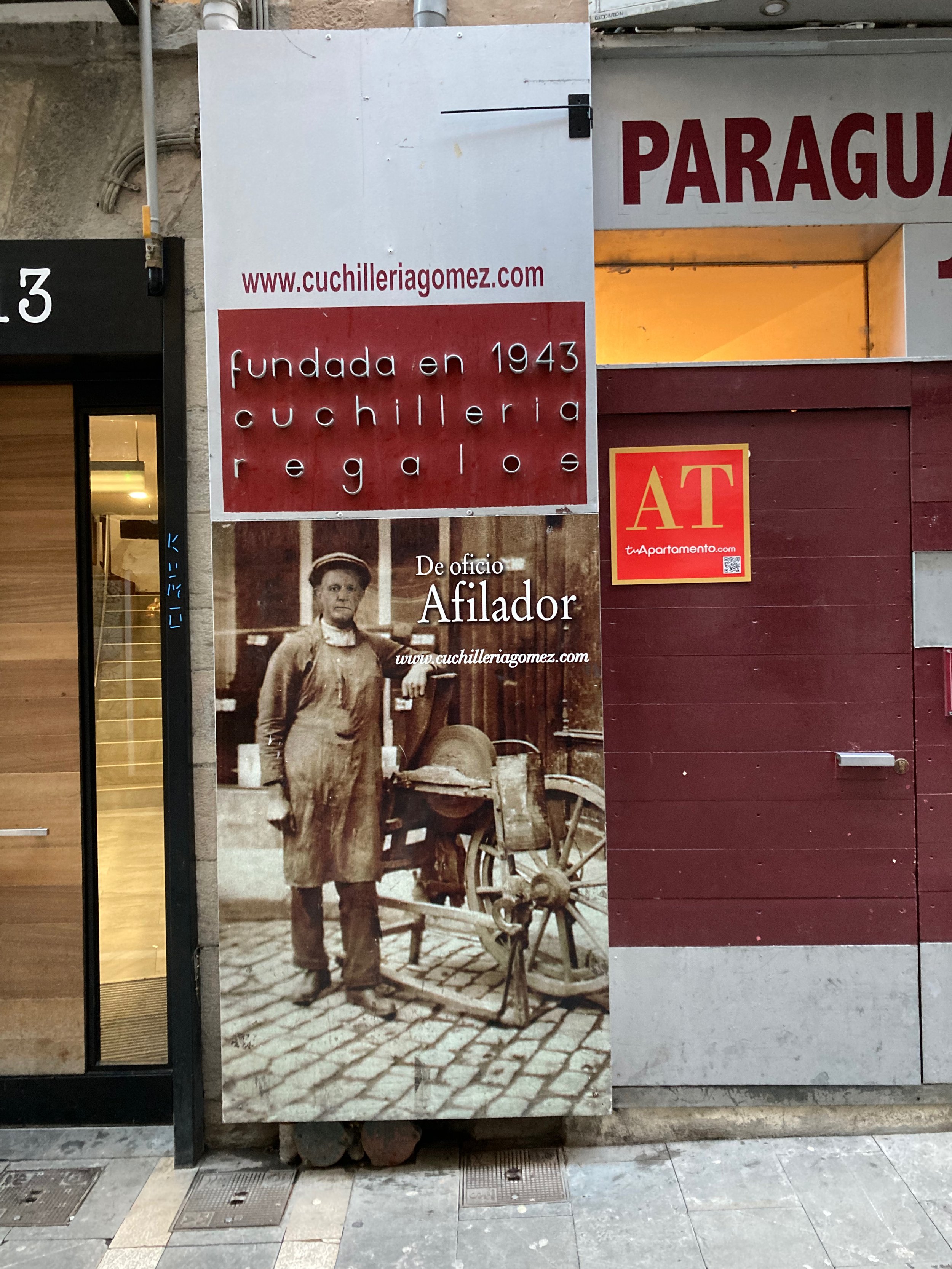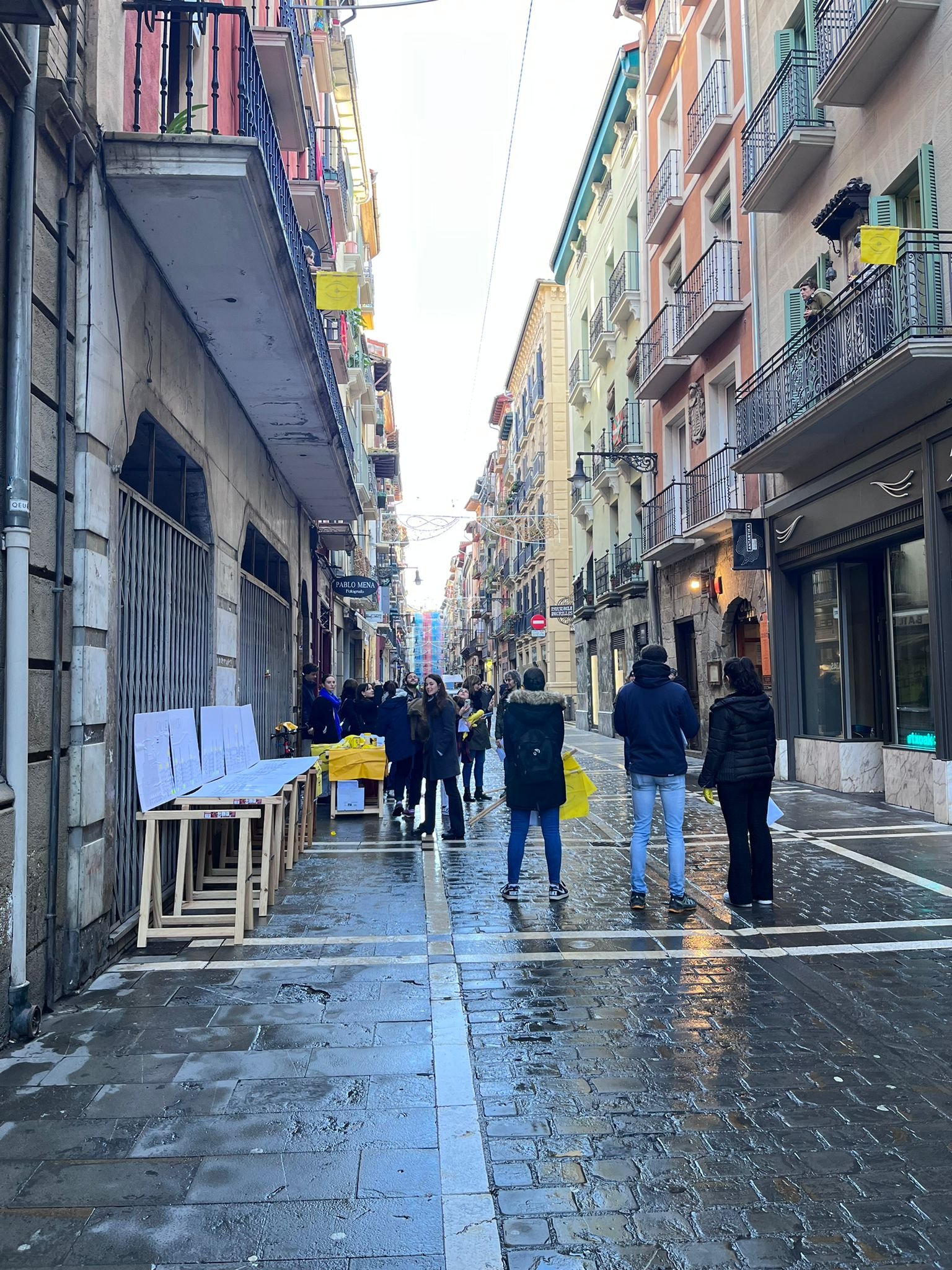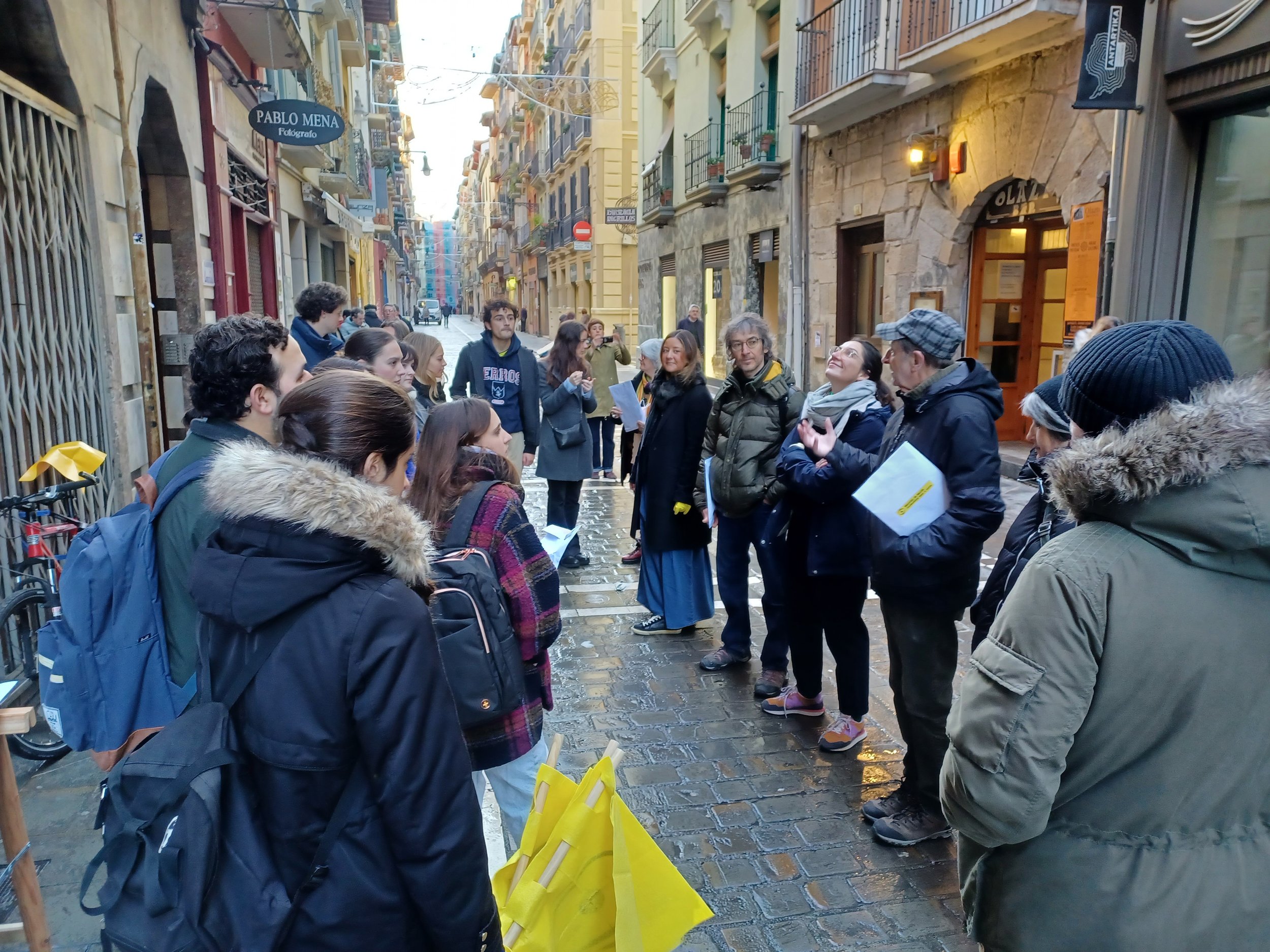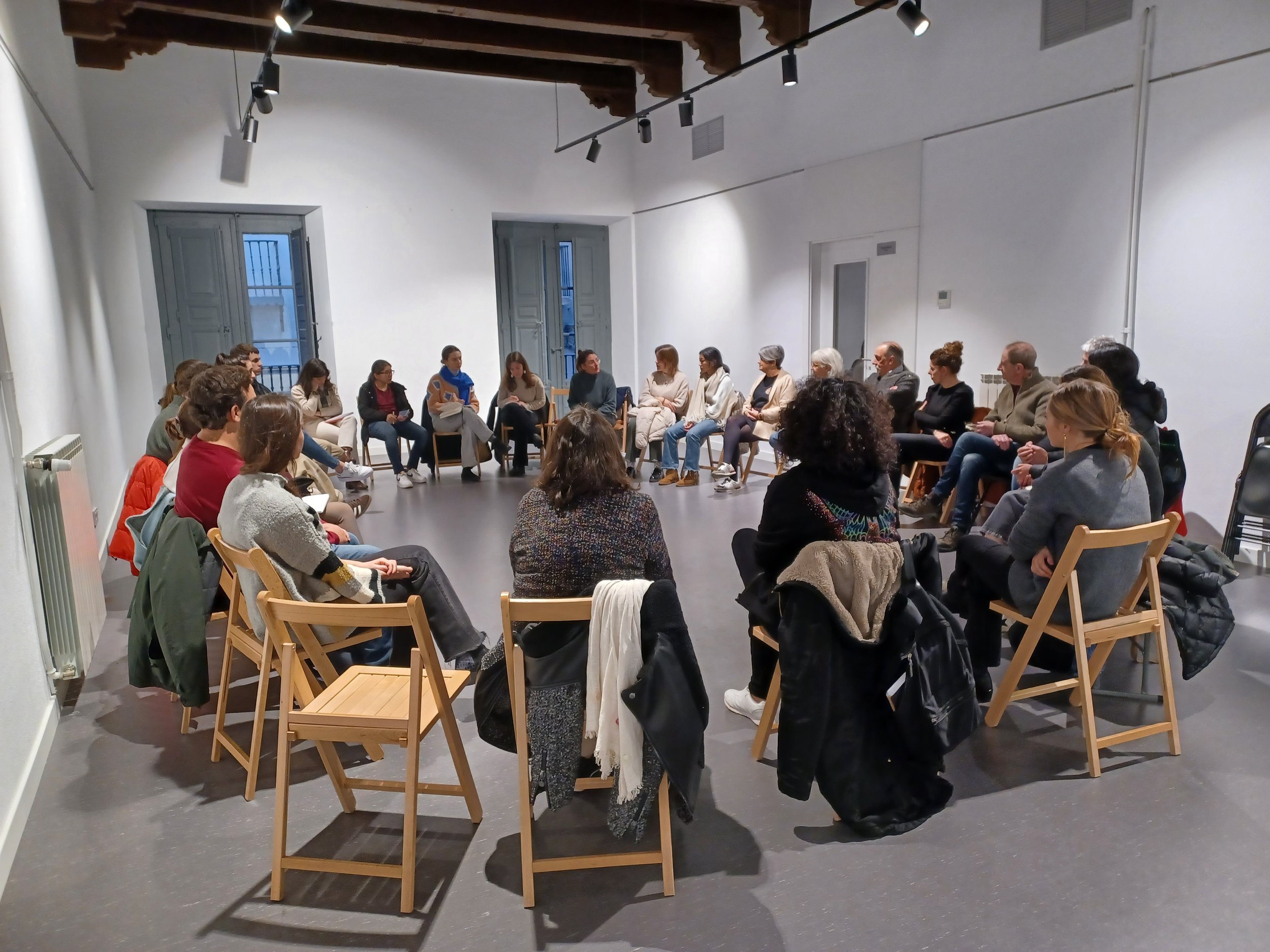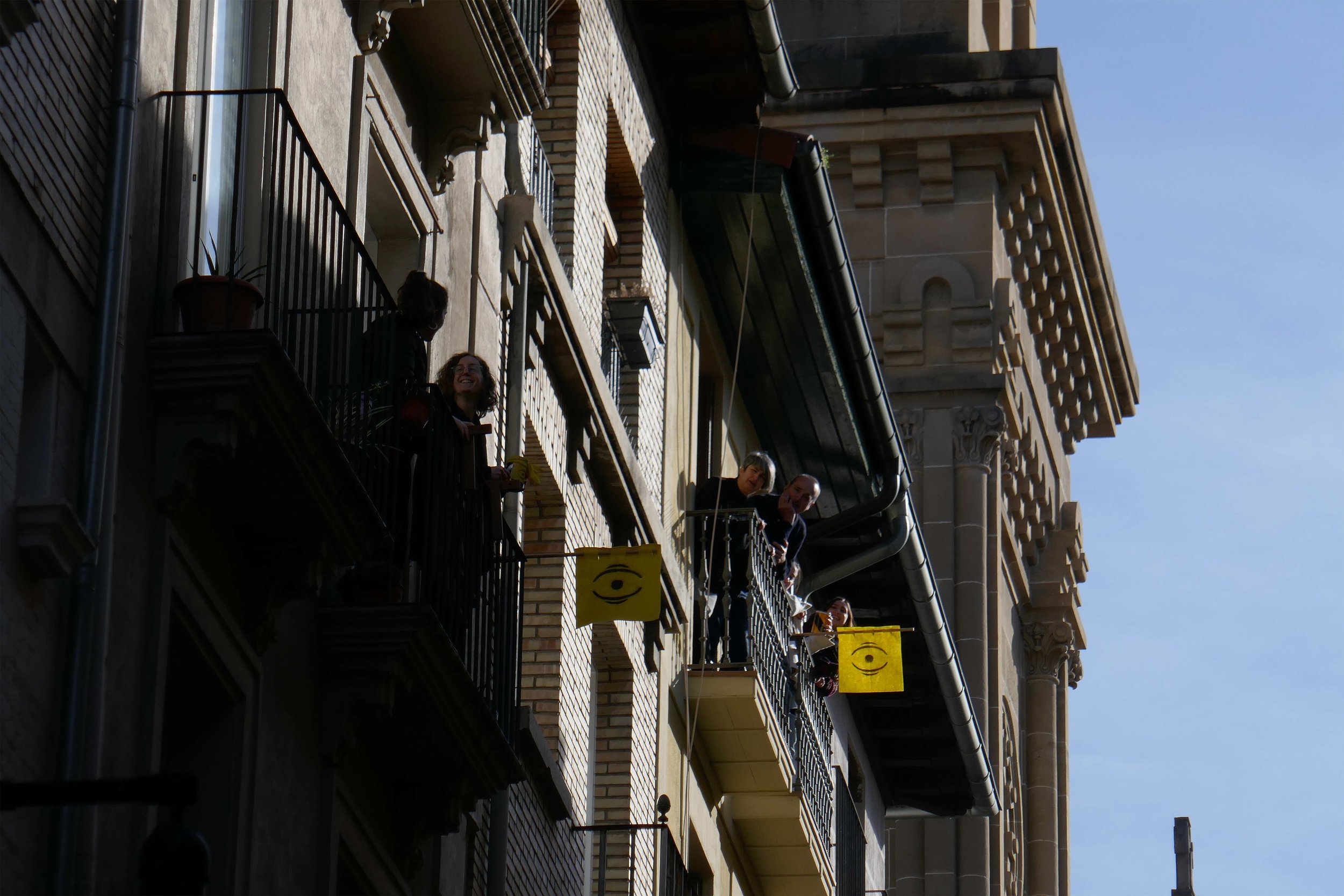
balcony tunes: looking after each other
Reactivating social infrastructures of care by reappropiating balconies as communication devices to connect neighbours in times of need.
balcony tunes: looking after each other (2023)
Pamplona, Navarra, Spain
Collaborators:
Community project developed as part of the Urban Studies International Seminar, School of Architecture, Universidad de Navarra. The workshop was developed and run by Catalina Pollak Williamson in conjunction with UNAV academic, Esperanza Marrodán.
Press:
Universidad de Navarra: ‘El proyecto ‘Melodías de balcón’ de estudiantes de Arquitectura de la Mención Urbana, en los medios’
SER - Sociedad Española de Radiodifusion: ‘Melodías de Balcón: la iniciativa en el Casco Viejo de Pamplona para fomentar el apoyo vecinal surgido en pandemia’ (25.01.23)
RTVE Audio: ‘Melodías de balcón: recuperar las redes tejidas hace 3 años’ (18.01.23)
Diario de Navarra: ‘Estudiantes de Arquitectura buscan reactivar las redes de solidaridad que nacieron en la pandemia’ (13.01.23)
Website:
Balcony Tunes emerged in response to the challenges posed by the COVID-19 pandemic, which revealed the urgent need for new ways to connect and support one another. This student-led, community-driven intervention set out to (re)activate the fragile infrastructures of care that had briefly surfaced during lockdown by reimagining balconies as relational devices for communication and mutual support.
Working across three pilot streets—each shaped by distinct social dynamics during the pandemic—the project began with a mapping process to identify existing needs and local capacities. What kinds of support were still needed? What forms of care could neighbours offer? From these encounters, the idea took shape. Drawing on familiar cultural references and everyday materials, Melodías proposed a decentralised system of DIY visual and acoustic signals —crafted with simple, easily accessible tools and designed to be assembled at home—that could be installed on balconies to enable residents to communicate in times of need.
One hundred kits were produced, each containing materials and instructions, and distributed on the final day of the workshop, when the prototype was tested in each of the three streets. Yellow cleaning-cloth flags stencilled with a ‘signalling eye’ were placed on balconies of participating households. Three distinct ‘tunes’ were rehearsed to respond to the most common needs identified by residents: one for companionship, another for assistance, and a third for emergencies. These were performed using makeshift instruments—a pebble inside a tin can sealed with a balloon—echoing across the street to the delight of those below. Responses came in the form of yellow rubber gloves waved from the street—an improvised gesture of care and recognition.
Rather than a one-off event, Balcony Tunes was conceived as a distributed infrastructure—lightweight, low-tech, and capable of evolving over time through resident-led adaptations. It invites us to rethink infrastructure not as fixed or formal systems, but as situated, relational practices grounded in improvisation and mutual trust.
The project offers a modest yet powerful reminder of how grassroots creativity can respond to urban challenges and rehearse new forms of collective life. Today, it lives on through the stewardship of the local residents’ association, which continues to care for and expand the network.

the tunes
